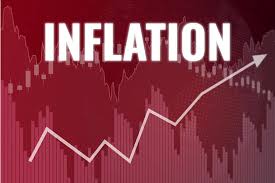MarketWatch
The numbers: The Federal Reserve’s preferred measure of inflation rose a sharp 0.9% in March, but the increase largely stemmed from a surge in the cost of gas and there were some signs that intense price pressures could be starting to ease.
Over the past 12 months, the so-called personal consumption price index has climbed 6.6%, up from 6.4% in February, the government said Friday. That’s the steepest increase since 1981.
Yet a narrower measure of inflation that omits volatile food and energy costs, known as the core PCE, rose by just 0.3% in March for the second month in a row. That matched the Wall Street forecast.
The increases in the core rate of inflation in February and March were the smallest back-to-back readings since last summer.
What’s more, the rate of core inflation in the past year slipped to 5.2% from 5.3%, marking the first month-to-month decline in more than a year.
The Fed views the PCE index — the core rate in particular — as the most accurate measure of U.S. inflation. It’s more comprehensive and takes into account when consumers substitute cheaper goods for more expensive ones — say ground beef for filet mignon or frozen spinach for fresh.
Big picture: The highest inflation since the early 1980s is putting more financial pressure on households and businesses and shaking up Washington. Even if the rate of inflation excluding gas and food has slowed, it offers small comfort for Americans who have to pay more to fill up the tank and put dinner on the table.
The Fed is moving to raise interest rates rapidly to try to cool off inflation, but economists say it will take time.
Prices have soared partly because of ongoing pandemic-related shortages of key supplies such as computer chips. The Fed’s easy-money strategy and massive government stimulus after the viral outbreak also contributed. Now all that stimulus is gone or going away.
Yet rising inflation is spurring workers to ask for higher pay and businesses to charge higher prices, potentially making it harder for the Fed to reverse the tide.
Looking ahead: “The bigger story from today’s data releases was further evidence that inflation is starting to ease,” said U.S. economist Andrew Hunter of Capital Economics.
“That won’t stop the Fed from hiking by 50 basis points next week, but it supports our view that inflation will fall a little more quickly this year than Fed officials now appear to expect,” he added.














